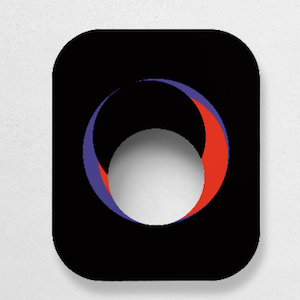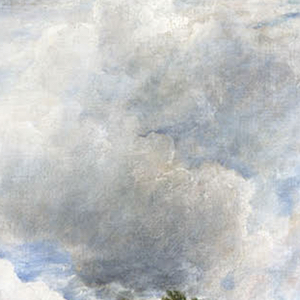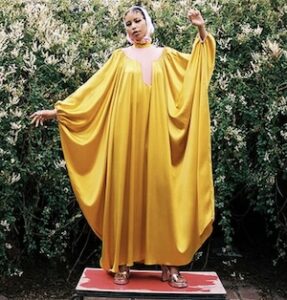ROOTS; Healing Through Creativity
By Jo Phillips
Chloe E. Williams
Is it possible to find beauty in the aftermath of tragedy? Creativity is often a path towards it. Tragedy frequently leaves us feeling like life will never be good again, and that everything we do or experience is tainted. Many people feel guilty when they feel joyful. However, it is possible to find yourself at the cusp of healing, and in turn, move forward. Artist and filmmaker Daria Martin knows this well.
Originally hailing from San Francisco, London-based Martin uses groundbreaking film and gaming technology to envelop you in the atmospheric environment of Tonight the World, an ‘exploration of inter-generational trauma, loss, and resilience.’ Through the creation of this new world, Martin celebrates her roots and the strength of the human spirit.

Martin trained as a painter when she was younger, an experience that allows her films to bring colour and texture together in a unique way. Her work has consistent connections between ‘people and objects, painting and performance, and internal and social worlds’ — all of which you experience in Tonight the World.
The exhibit draws its inspiration from the dream diary of Martin’s grandmother, Susi Stiassni, who, at 16 years old, fled the Nazi occupation of Czechoslovakia in 1938. She was born to Jewish textile industrialists, and her career as an artist inspired Martin to become an artist herself.
Books have a special way of connecting us to one another by giving us a glimpse into what catches others’ attention and sparks their passion. Stiassni’s diary, which begins in the early 1970s, spans 35 years and is made up of over 20,000 pages. Because Stiassni was never able to return to Brno after evacuating to America, these dreams allowed her to revisit her home.

After invading Czechoslovakia, Nazi Germany forced all of the country’s higher education institutions to close in 1939, including four Brno universities. The Gestapo even took over one residence hall as their headquarters and prison.
From 1941 to 1944, at least 11,041 people were transported from Brno to Terezin concentration camp. After the war ended and the Germans were removed in what is called the Brno death march, only 1,033 of those people returned.
Tonight the World fits perfectly with Barbican’s 2019 season, Life Rewired, which ‘explores what it means to be human when technology is changing everything.’ It is a creative collaboration between gamers in Brno, a popular gaming hub today, and Martin’s artistry that allows you into Stiassni’s ‘lost dream diary archive.’ The first part of the exhibit features a video game recording that takes place in Stiassni’s villa, with you watching as if you were the player, where the only things with colour are the objects the player is in search of.
Then, make your way down a curved hallway that features a real photo of Stiassni’s home, and all of her dream diary entries pasted on the wall. Your final stop is a 16mm anamorphic film, shot in the villa itself. This film turns five of these dreams into a scene, with their respective diary entries framed on the wall. Four different actress portray Stiassni, each clad in fuschia, and a constant anxiety hangs over every situation she is forced into.

© Daria Martin, courtesy Maureen Paley, London
Not only does Martin connect with her roots in this celebration of her grandmother, but she offers us the opportunity to examine our own. Through this ‘space where memory, time and place clash and blend,’ Martin is able to achieve healing.
Tonight the World is on now at the Barbican until April 7th.





